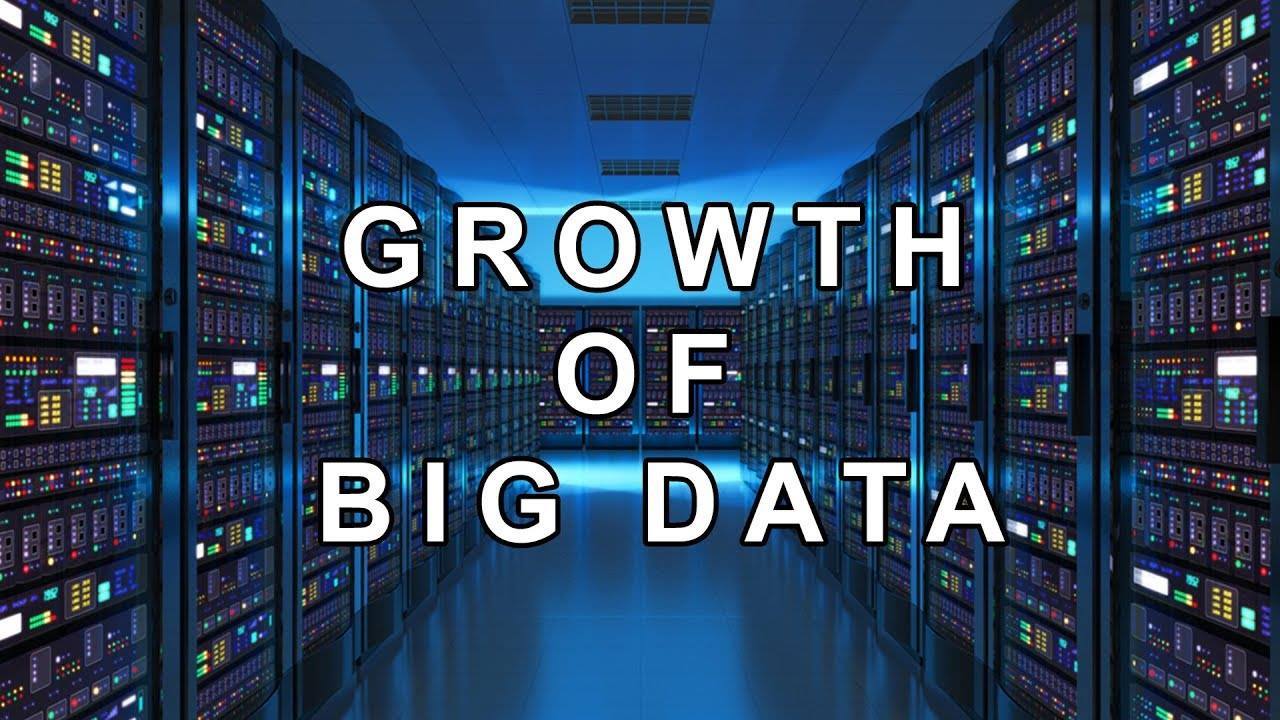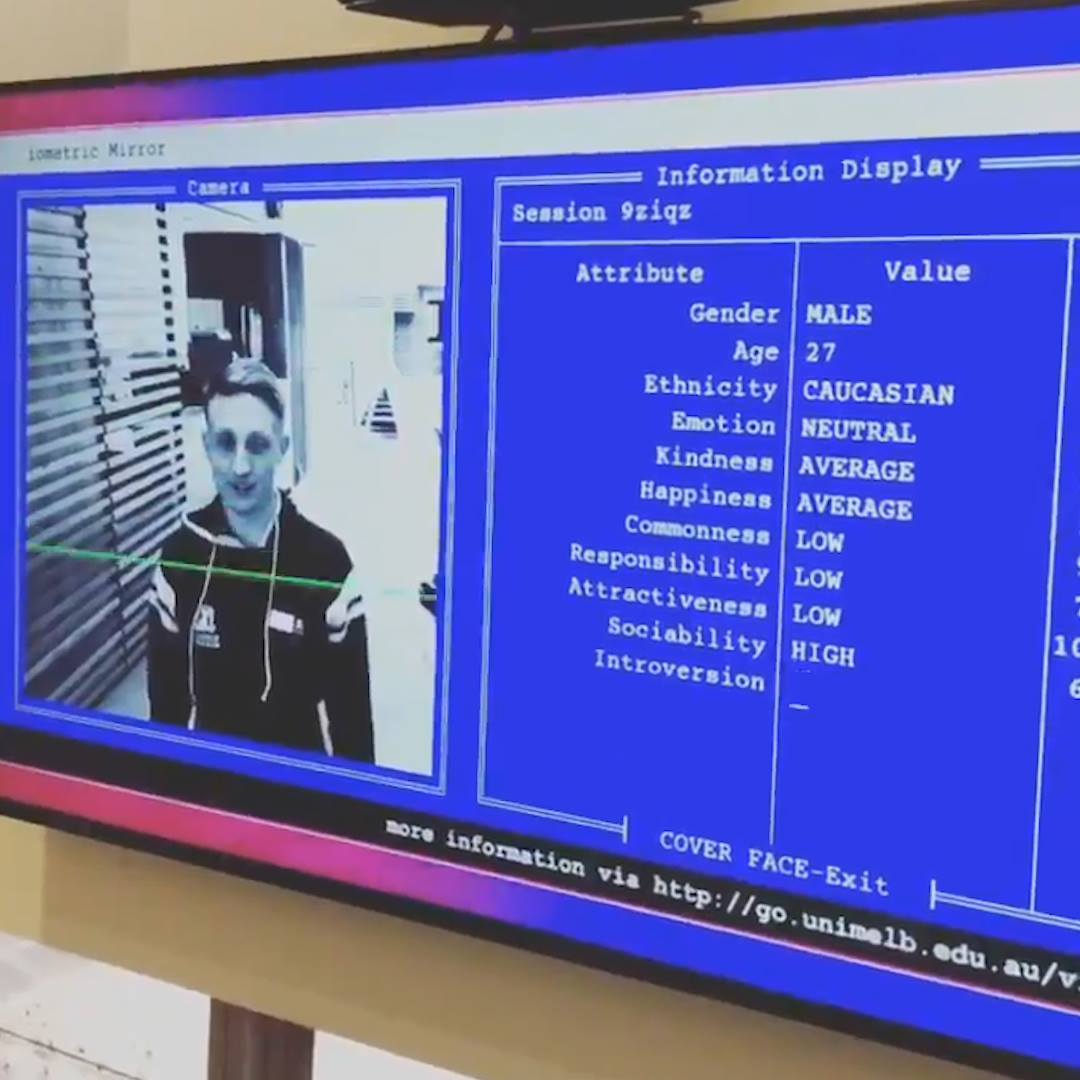Archive for the ‘information science’ category: Page 252
Sep 15, 2018
Neural networks? Machine learning? Here’s your secret decoder for A.I. buzzwords
Posted by Genevieve Klien in categories: information science, robotics/AI

Don’t know your machine learning from your evolutionary algorithms? Our handy A.I. buzzword guide is here to help.
Sep 13, 2018
The Exponential Growth of Data
Posted by Ankur Bargotra in categories: evolution, information science

This video is the first in a two-part series discussing big data. In this video, we’ll be discussing the importance of data and the role, it has played in advancing humankind as well as the exponential rate of growth of data.
[0:29–4:19] — Starting off we’ll look at, how data has been used as a tool from the origins of human evolution, starting at the hunter-gatherer age and leading up to the present information age.
[4:19–7:48] — Following that we’ll discuss, the many statistics demonstrating the exponential rate of growth and future growth of data.
Sep 11, 2018
How Google’s using AI and big data to make travel better
Posted by Genevieve Klien in categories: information science, robotics/AI
Since its acquisition of ITA Matrix Software eight years ago, Google has been quietly rolling out new tools for travelers. Its progress has been even more notable over the past months and weeks as it began unveiling tools to help predict flight delays, plan trips, and manage itineraries — among other things.
These changes have some wondering: Is Google making a run at total domination in the travel space? If it is, there’s a strong case to be made for its potential to disrupt the travel and hospitality sector with a similar approach to Amazon’s run at retail, and more recently grocery.
Sep 10, 2018
AI speeds up climate computations
Posted by Bill Kemp in categories: climatology, information science, mathematics, robotics/AI, supercomputing
Realistic climate simulations require huge reserves of computational power. An LMU study now shows that new algorithms allow interactions in the atmosphere to be modeled more rapidly without loss of reliability.
Forecasting global and local climates requires the construction and testing of mathematical climate models. Since such models must incorporate a plethora of physical processes and interactions, climate simulations require enormous amounts of computational power. And even the best models inevitably have limitations, since the phenomena involved can never be modeled in sufficient detail. In a project carried out in the context of the DFG-funded Collaborative Research Center “Waves to Weather”, Stephan Rasp of the Institute of Theoretical Meteorology at LMU (Director: Professor George Craig) has now looked at the question of whether the application of artificial intelligence can improve the efficacy of climate modelling. The study, which was performed in collaboration with Professor Mike Pritchard of the University of California at Irvine und Pierre Gentine of Columbia University in New York, appears in the journal PNAS.
General circulation models typically simulate the global behavior of the atmosphere on grids whose cells have dimensions of around 50 km. Even using state-of-the-art supercomputers the relevant physical processes that take place in the atmosphere are simply too complex to be modelled at the necessary level of detail. One prominent example concerns the modelling of clouds which have a crucial influence on climate. They transport heat and moisture, produce precipitation, as well as absorb and reflect solar radiation, for instance. Many clouds extend over distances of only a few hundred meters, much smaller than the grid cells typically used in simulations – and they are highly dynamic. Both features make them extremely difficult to model realistically. Hence today’s climate models lack at least one vital ingredient, and in this respect, only provide an approximate description of the Earth system.
Sep 9, 2018
Facebook’s AI Just Set A New Record In Translation And Why It Matters
Posted by Shailesh Prasad in categories: information science, robotics/AI
A new AI algorithm developed at Facebook could enable translating between obscure languages and across disparate domains.
Aug 30, 2018
Citi Lists Anti-Aging Medicines in Top 10 Disruptive Technologies
Posted by Steve Hill in categories: biotech/medical, information science, internet, life extension, robotics/AI
Citi has produced another of its Disruptive Innovations publications, which takes a look at what it considers to be the top ten disruptive technologies. It is a sign of the changing times that anti-aging medicines are number 2 in its list.
1. All-Solid-State Batteries 2. Anti-Aging Medicines 3. Autonomous Vehicle Networks 4. Big Data & Healthcare 5. Dynamic Spectrum Access 6. eSports 7. 5G Technology 8. Floating Offshore Wind Farms 9. Real Estate Market Disruptors 10. Smart Voice-Activated Assistants.
What was considered fringe science a decade ago is now rapidly becoming a mainstream industry. Our understanding of aging has advanced quickly in the last 10 years, and the tools and innovations seem to come more quickly with each passing year. A variety of therapies that target different aging processes are in development, and some are at fairly advanced stages; if you are interested in their progress, check out the Rejuvenation Roadmap.
Aug 29, 2018
Artificial Intelligence Project Judges People on Attractiveness and Responsibility to Trigger Discussion on Consent and Algorithmic Bias
Posted by Shailesh Prasad in categories: information science, robotics/AI

This AI can JUDGE how attractive you are and more… and it could be a dangerous sign of things to come.
Aug 28, 2018
AI and the HR Professional
Posted by Steve Nichols in categories: economics, employment, information science, policy, robotics/AI
The World Economic Forum suggests we are on the cusp of a Fourth Industrial Revolution driven by ‘ubiquitous automation, big data and artificial intelligence’. The Institute for Public Policy Research, however, says that “despite the growing capability of robots and artificial intelligence (AI), we are not on the cusp of a ‘post-human’ economy.”
IPPR suggests that an estimated 60 percent of occupations have at least 30 percent of activities which could be automated with already-proven technologies. As tasks are automated, work is likely to be redefined, focusing on areas of human comparative advantage over machines.
The CIPD point out that “new technology has changed many more jobs than it has destroyed, and it does not destroy work. Overall, the biggest advanced industrialized economies have between them created over 50 million jobs, a rise of nearly 20 percent, over the past 20 years despite huge economic and technological disruptions.”
Aug 27, 2018
To Test Einstein’s Equations, Poke a Black Hole
Posted by Genevieve Klien in categories: cosmology, information science, mathematics
Researchers make significant progress toward proving a critical mathematical test of the theory of general relativity.
- By Kevin Hartnett, Quanta Magazine on August 27, 2018














